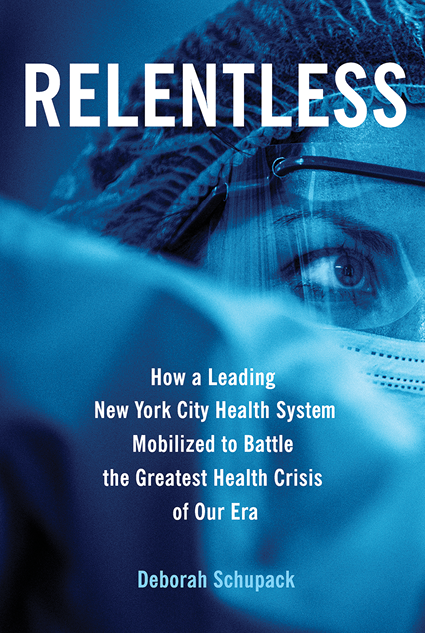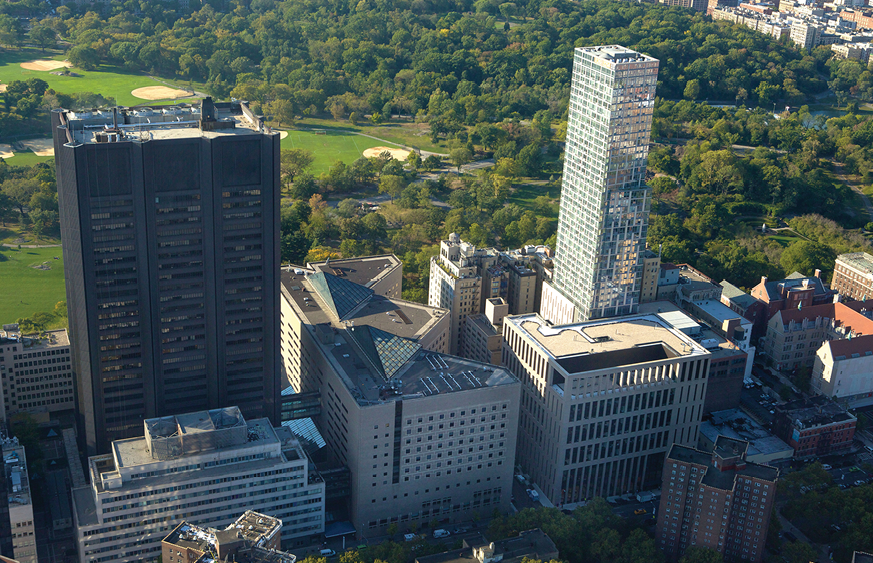- Home
- Media Kit
- MediaJet
- Current Issue
- Past Issues
- Ad Specs-Submission
- Ad Print Settings
- Reprints (PDF)
- Photo Specifications (PDF)
- Contact Us
![]()
ONLINE
![]()
ONLINE

The Forefront
of Science
Editors’ Note
Dr. Kenneth Davis attended the Icahn School of Medicine at Mount Sinai and completed a residency and fellowship in psychiatry and pharmacology, respectively, at Stanford University Medical Center. Upon returning to Mount Sinai, he became Chief of Psychiatry at the Mount Sinai-affiliated Bronx Veterans Administration Medical Center and launched Mount Sinai’s research program in the biology of schizophrenia and Alzheimer’s disease therapeutics. Davis was appointed CEO of Mount Sinai Medical Center in 2003 after spending 15 years as Chair of Mount Sinai’s Department of Psychiatry. He was the first director for many of the institution’s research entities and received one of the first and largest program project grants for Alzheimer’s disease research from the National Institutes of Health. Davis also served as Dean of the Icahn School of Medicine at Mount Sinai from 2003 to 2007 and as President of the American College of Neuropsychopharmacology in 2006. In 2002, he was elected to the Institute of Medicine of the National Academy of Sciences, and in 2009 his undergraduate alma mater, Yale University, presented him with the George H.W. Bush ’48 Lifetime of Leadership Award.
Institution Brief
Mount Sinai Health System (mountsinai.org) encompasses the Icahn School of Medicine at Mount Sinai and eight hospitals, as well as a large and expanding ambulatory care network. The eight hospitals – Mount Sinai Beth Israel, Mount Sinai Brooklyn, The Mount Sinai Hospital, Mount Sinai Queens, Mount Sinai St. Luke’s, Mount Sinai South Nassau, Mount Sinai West, and New York Eye and Ear Infirmary of Mount Sinai – have a vast geographic footprint throughout the New York metropolitan region. The Mount Sinai Hospital is ranked number 14 in the nation by U.S. News & World Report and ranked in the top 20 nationally in eight medical specialties in the 2019-20 “Best Hospitals” guidebook. The New York Eye and Ear Infirmary of Mount Sinai is also ranked nationally in ophthalmology.
How do you define Mount Sinai Health System’s purpose?
Our purpose is discovering, developing and bringing to people the newest, most cutting-edge therapeutics and diagnostics. You do not come here for routine care – you come here because we can provide what few others can because we are on the forefront of science.
Is Mount Sinai’s medical school a differentiator?
Our medical school was formed from our hospital – our hospital gave birth to our medical school. They are intimately tied together and report to one board of trustees, which is very different from many other medical schools. This link means that there is an easier transition from the bench to the bedside as there are no administrative obstacles in making that happen. This is a differentiator for Mount Sinai.

Mount Sinai Health System was on the front lines of the pandemic. How critical are lessons learned in order for the industry to be effectively prepared for future crises?
When the crisis began, it was very difficult to test whether people were COVID positive or whether they had antibodies. Our immunobiologists worked night and day to develop an assay to determine antibodies and a diagnostic. Our antibody test became the main antibody test, so we were right there at the beginning. Then, since we have a history in vaccines, we continued to develop our own vaccine, even though we knew that Pfizer and Moderna were working on it with massive amounts of funding – we kept working as well. What did this mean? This means that we now have license and are working on a vaccine that is nasal which is important because we know this is the point of entry for the virus. This is where you want your antibodies first and it will be more effective. COVID is not going away and breakthrough infections are enormous. A vaccine that is nasal will be another breakthrough and Mount Sinai Health System is working on making this happen. We proved once again during COVID that we are flexible and are making a difference.
In regard to our efforts with COVID, we just published a book, Relentless, which chronicles our response during these two years and includes several “miracle” stories of patients who were treated 100+ days.
“Our purpose is discovering,
developing and bringing to people the
newest, most cutting-edge therapeutics and diagnostics. You do not come here for routine care – you come here because we can provide what few others can because we are on the forefront of science.”
How critical is the commitment to addressing long haul COVID which so many people are experiencing?
We identified long haulers very early and were the first to create a long hauler clinic. We brought our specialists in to address these concerns, whether you had kidneys that were compromised, hearts that were compromised, brains that were not functioning the same way – we engaged the experts who had the experience and expertise in treating those organs and they worked as a team to focus on these new symptoms resulting from COVID. We are encouraged by the work we have done. At times it can get a little discouraging by how serious and prevalent these problems can be, but we are all-in and committed to supporting and helping long haulers.
How has Mount Sinai Health System supported its workforce who faced such emotional and mental strain during this unprecedented time?
Our Dean, Dennis Charney, and I are both psychiatrists and Dennis’ entire career focused on neurobiology and the treatment of anxiety and post-traumatic stress disorders. He knew immediately the kind of pain and anxiety that our staff were under and we quickly established a special program to reach out to our employees and help them with the problems they were experiencing. We set-up a resilience center and we knew that there may be some resistance to coming forward and saying that you were experiencing these problems since our people focus on treating others, so we proactively reached out to them and held meetings with groups to talk about the issues – we brought care to our people who cared for so many during this difficult time.

Mount Sinai campus on Manhattan’s Upper West Side
Will you discuss the importance of addressing the social determinants of health?
The determinants of health outcomes are largely socio-demographic – whether you are employed, what you eat, the quality of where you live. It is critical for the government to realize that they need to spend money on the social determinants of health, otherwise the Medicare and Medicaid budgets are going to go out of sight. Government needs to invest in areas to be preventive.
Are you confident that the industry will attract and retain the talent needed to address the future challenges of healthcare?
I do not worry about the next generation of doctors. We have a record number of applicants this year for our medical school. People know that this is a profession where you make a difference. Having said that, I am concerned about other staffing needs, such as radiation technicians, nurses, pharmacy technicians – there is a shortage of people for these vital roles and we need to start the pipeline earlier, find incentives for these people, and make tuition affordable so that we can get people into these jobs earlier.
Will you discuss Mount Sinai Health System’s commitment to building a diverse and inclusive workforce?
This is critical and has been a major focus for us. Over 40 percent of our employees are minority and we are deeply committed to the notion that when people come to Mount Sinai for treatment, they should see their own community. This is how the best outcomes happen. We will continue to build on these efforts and I am part of a group that Jamie Dimon leads that is focused on identifying underprivileged minorities as early as high school and mentoring them and providing the financial assistance that is necessary to assist them in pursuing careers in areas where they are underrepresented.
Mount Sinai Health System also has programs with community partners that expose high school students to careers in healthcare since we need to reach these people early and provide the opportunity for access and exploration for kids with all types of diverse backgrounds to excite them about the industry.
What do you see as the role of the hospital in the future and has the pandemic impacted the focus on the number of beds required or the most appropriate size of a hospital?
It is clear that the long-term outlook for hospitals is that care is becoming more ambulatory because of advances in medicine. However, when COVID hit, it was all about the need for more beds in the hospital to care for patients. This has shown us that we must have the capacity to rapidly expand in case of another pandemic. It is about having the flexibility to adapt and pivot quickly which is a strength for Mount Sinai.
Are you excited about what is on the horizon for new therapeutics and discoveries to meet the future challenges in healthcare?
We are entering a period in the history of mankind where we are witnessing a revolution in biology, and that revolution in biology is going to result in therapeutics we could not have dreamed of, just like the revolution in physics that happened decades ago provided the opportunities for us to be doing this video conference and created communications and computers that we could have never imagined before. We are living through a revolution in biology that began with sequencing the human genome. I am deeply excited about what is to come in the future, and just hope I am around long enough to see it.![]()